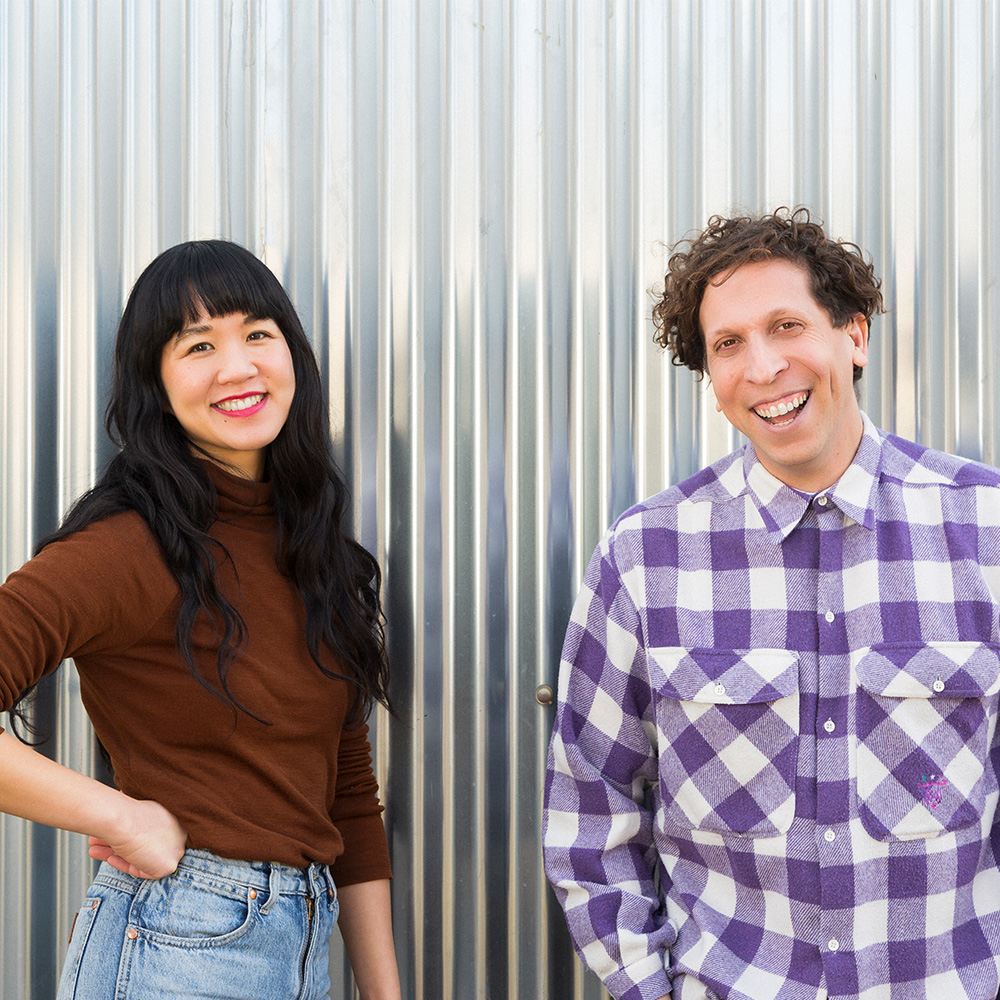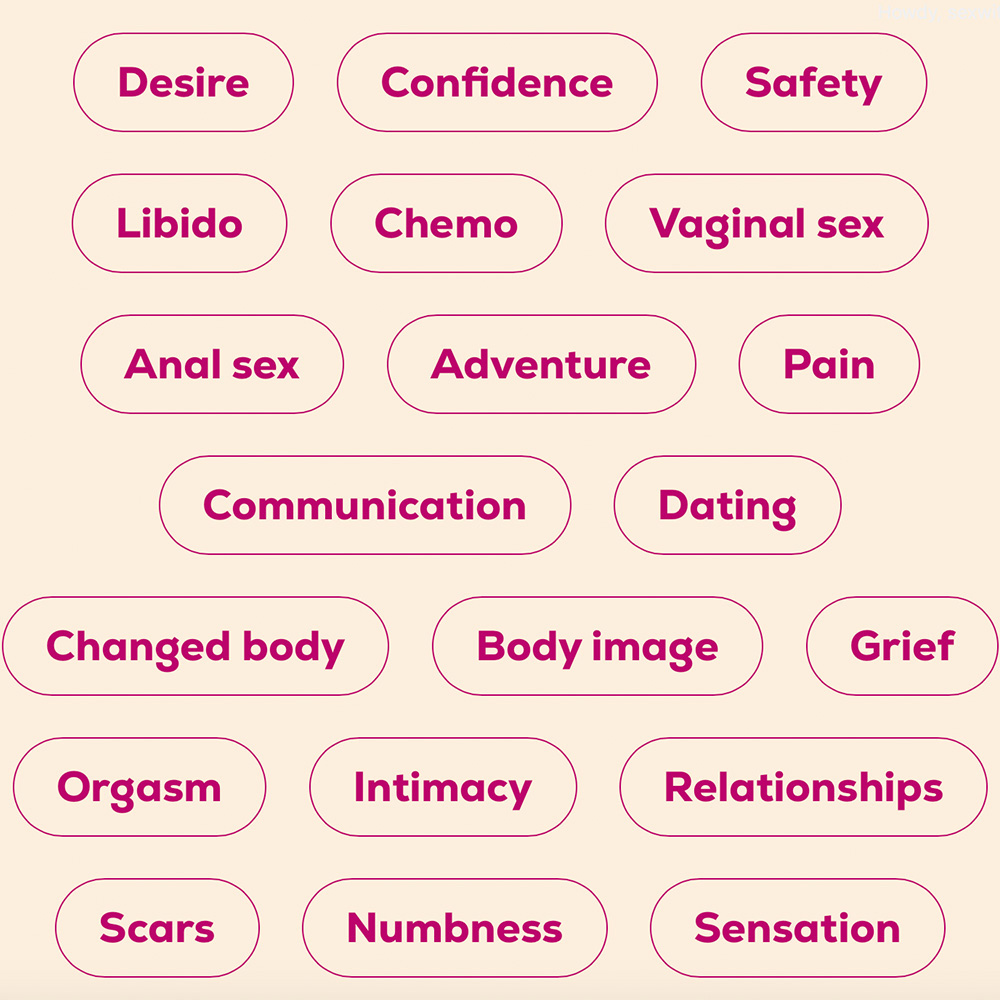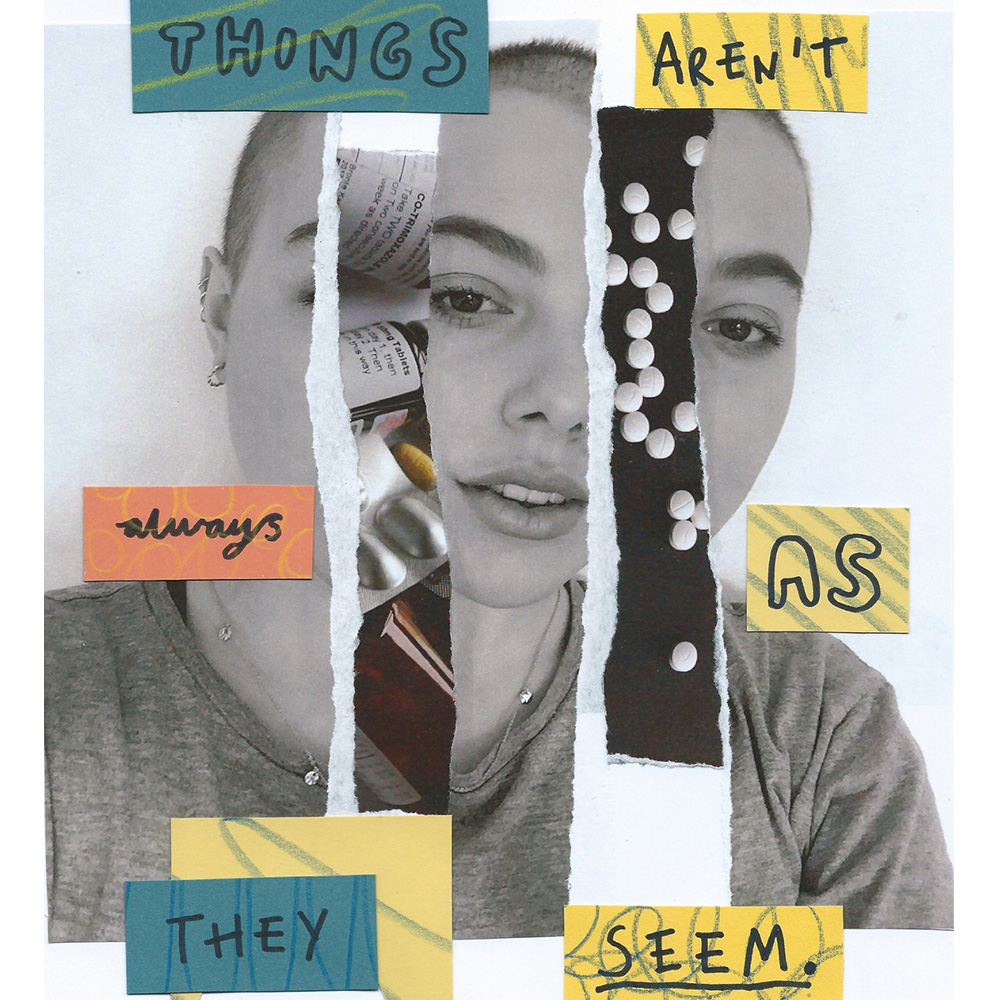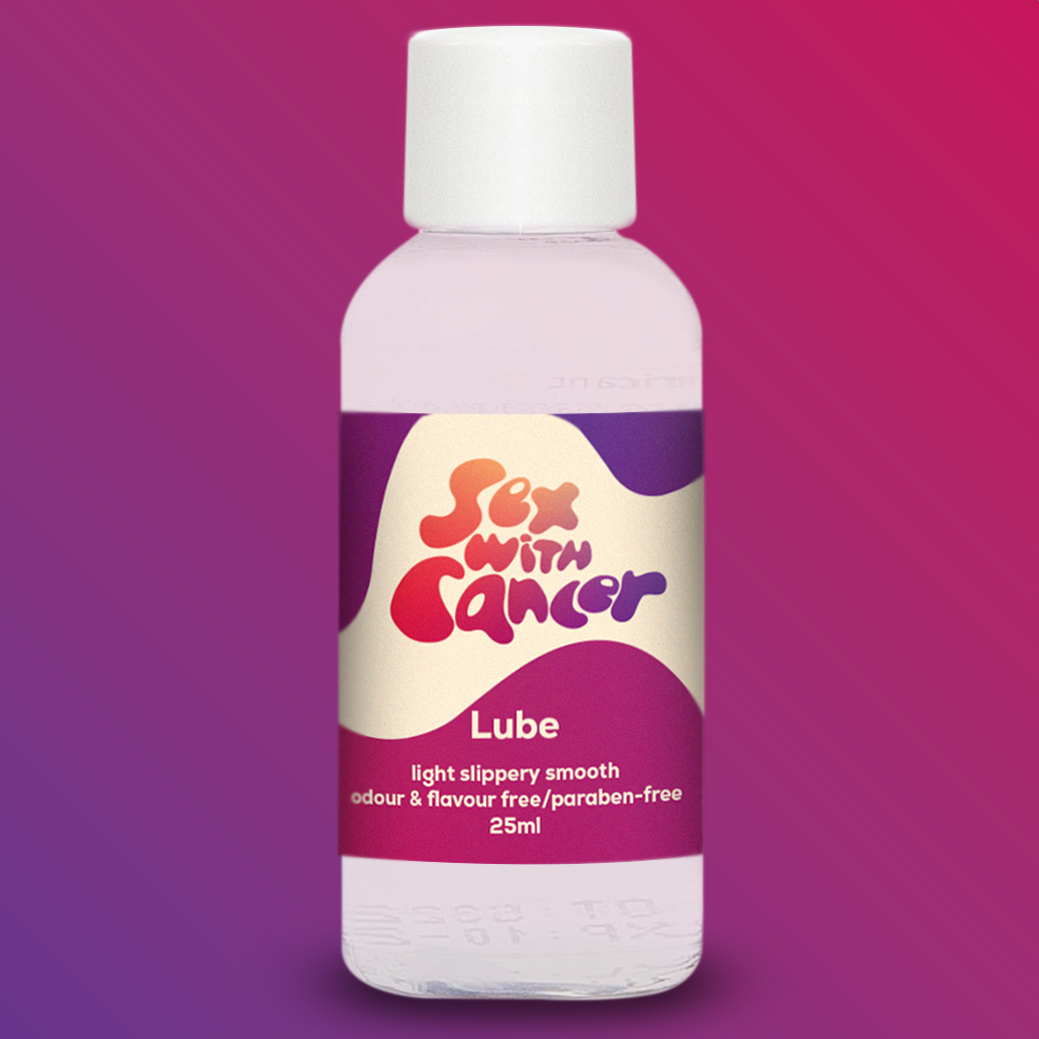What is Sex with Cancer?
Sex with Cancer is an online shop, an artwork, and a public campaign exploring how people living with and beyond cancer can take agency over their own health and wellbeing.
Set up by two friends, artists and former cancer patients, Brian Lobel and Joon-Lynn Goh, Sex with Cancer has been created with a community of patients, nurses, psychosexual therapists, pleasure activists and sex-toy specialists.
Whether you are living with or beyond cancer, a partner, a potential lover or a medical professional – we provide practical solutions, peer-led resources, and creative ways of re/discovering our bodies and relationships.
Welcome to Sex with Cancer – the business that aims to raise more than just awareness!

Who is it for?
Sex with Cancer is for people living with and beyond cancer, seeking creative solutions to problems caused by cancer.
It’s for anyone feeling shy or embarrassed in front of doctors, put off by medical jargon and warnings, or ill fitted to a story of ‘survival’, where pleasure is of secondary importance.
It’s also for partners, lovers and admirers wanting to up their game!

Why is it needed?
Cancer, and the treatments for cancer, often have serious effects on a person’s sex life in direct and indirect ways.
Surgeries can result in body parts being removed, or scars that can take time to get use to. Chemotherapy and radiotherapy can cause exhaustion, weight loss, weight gain, loss of interest in sex, erectile dysfunction, vaginal dryness, and heightened infection risks. People with cancer are navigating lots of emotions, traumas and priorities, all of which might make sex less desirable or feasible.
Moreover, there can often be a disconnect between patients and medical professionals. Many people feel uncomfortable talking about sex with their medical teams. At the same time, many medical professionals lack the confidence and training to talk about sexual function and pleasure.
Then, there’s a dominant national cancer dialogue promoting ‘getting back to normal’ instead of ‘loving a body’s new normal’, and barriers to promoting the use of sex toys (which are not medically tested so cannot be formally recommend by doctors). All this leads to overly-medicalised information, scared patients, nervous doctors, and lots of missed opportunities for good sex and meaningful intimacy – with others and yourself.
Sex with Cancer aims to, shall we say, lubricate these difficult conversations by centring patients and their admirers, and drawing on sex-positive professional expertise. We believe information promotes confidence, and confidence is sexy!



